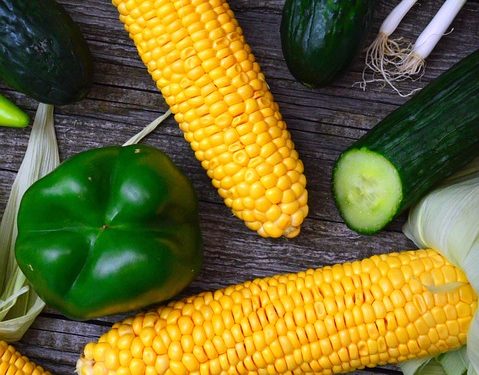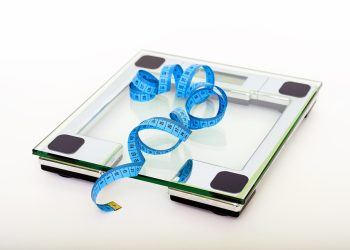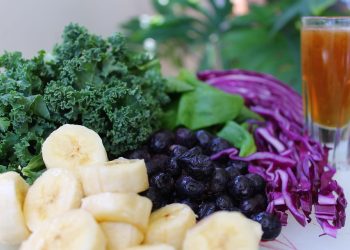Losing weight is a common goal, but keeping it off is the real challenge. Fad diets and extreme measures often lead to short-term results followed by frustration and weight regain. Sustainable weight loss focuses on making gradual, long-term lifestyle changes that promote both physical and mental well-being. This article explores evidence-based strategies for achieving lasting weight loss success.
Understanding Sustainable Weight Loss
Sustainable weight loss isn’t about quick fixes; it’s about building healthy habits you can maintain for a lifetime. It emphasizes:
- Gradual changes: Small, manageable adjustments to your diet and activity levels are more likely to become permanent habits.
- Balanced nutrition: Focusing on whole, unprocessed foods rather than restrictive diets.
- Regular physical activity: Finding activities you enjoy and incorporating them into your routine.
- Mindful eating: Paying attention to your body’s hunger and fullness cues.
- Behavioral changes: Addressing underlying habits and triggers that contribute to weight gain.
- Mental well-being: Managing stress, improving sleep, and cultivating a positive body image.
Dietary Strategies for Long-Term Success
What you eat plays a crucial role in weight management. The key is to adopt a balanced eating plan that nourishes your body and supports your weight loss goals.
Prioritize Whole, Unprocessed Foods
Focus on filling your plate with foods that are as close to their natural state as possible. These include:
- Fruits and vegetables: Aim for a variety of colors to ensure you’re getting a wide range of vitamins and minerals.
- Lean protein sources: Choose options like chicken breast, fish, beans, lentils, and tofu.
- Whole grains: Opt for brown rice, quinoa, oats, and whole-wheat bread instead of refined grains.
- Healthy fats: Incorporate sources like avocados, nuts, seeds, and olive oil.
Minimizing processed foods, sugary drinks, and excessive amounts of unhealthy fats is essential.
Control Portion Sizes
Even healthy foods can contribute to weight gain if consumed in large quantities. Be mindful of portion sizes and use smaller plates and bowls. A helpful tip is to use your hand as a guide: a serving of protein should be about the size of your palm, and a serving of carbohydrates should be about the size of your cupped hand.
Hydrate Adequately
Drinking plenty of water is crucial for overall health and can also aid in weight loss. Water helps you feel full, boosts metabolism, and can help you differentiate between thirst and hunger. Aim for at least 8 glasses of water per day, and increase your intake if you’re physically active.
Limit Sugary Drinks
Sugary drinks like soda, juice, and sweetened tea are high in calories and offer little to no nutritional value. Replacing them with water, unsweetened tea, or sparkling water can significantly reduce your calorie intake.
Be Mindful of Hidden Calories
Many foods contain hidden calories in the form of added sugars, fats, and sodium. Read food labels carefully and be aware of serving sizes. Pay particular attention to sauces, dressings, and condiments, as these can quickly add up in calories.
Example Meal Plan
Here’s a sample meal plan focused on sustainability:
- Breakfast: Oatmeal with berries and nuts, or a Greek yogurt parfait with fruit.
- Lunch: Salad with grilled chicken or tofu, or a whole-wheat wrap with hummus and vegetables.
- Dinner: Baked salmon with roasted vegetables, or lentil soup with whole-grain bread.
- Snacks: Fruits, vegetables, nuts, or Greek yogurt.
The Power of Physical Activity
Regular physical activity is essential for weight loss and overall health. It helps you burn calories, build muscle mass, and improve your cardiovascular health.
Find Activities You Enjoy
The key to staying active is to find activities you enjoy. This could be anything from walking and running to swimming, cycling, dancing, or playing sports. Experiment with different activities until you find something you look forward to doing.
Aim for Regularity
Aim for at least 150 minutes of moderate-intensity aerobic activity or 75 minutes of vigorous-intensity aerobic activity per week, as recommended by health organizations. You can break this up into smaller chunks of time throughout the week. Strength training exercises are also important for building muscle mass and boosting metabolism; aim for two or more days per week of strength training exercises that work all major muscle groups.
Incorporate Activity into Your Daily Life
Look for opportunities to incorporate more activity into your daily life. Take the stairs instead of the elevator, walk or bike to work, or do some light stretching or yoga during your lunch break. Even small changes can make a big difference over time.
Track Your Progress
Tracking your activity levels can help you stay motivated and accountable. Use a fitness tracker, app, or journal to monitor your progress and identify areas where you can improve.
Listen to Your Body
It’s important to listen to your body and avoid overexertion. Start slowly and gradually increase the intensity and duration of your workouts. If you experience any pain, stop and rest.
The Importance of Behavioral Changes
Losing weight is not just about diet and exercise; it’s also about changing your behaviors and thought patterns. These strategies can help you develop healthier habits and overcome challenges.
Set Realistic Goals
Set realistic and achievable weight loss goals. Aim for a gradual weight loss of 1-2 pounds per week. This is more sustainable and less likely to lead to weight regain.
Identify Triggers
Identify the triggers that lead to unhealthy eating habits. These could be stress, boredom, emotions, or social situations. Once you’re aware of your triggers, you can develop strategies to cope with them in healthier ways.
Practice Mindful Eating
Mindful eating involves paying attention to your food and your body’s hunger and fullness cues. Eat slowly, savor each bite, and avoid distractions like TV or your phone. This can help you eat less and feel more satisfied.
Develop Coping Mechanisms
Find healthy ways to cope with stress and emotions, such as exercise, meditation, or spending time with loved ones. Avoid using food as a source of comfort or reward.
Seek Support
Surround yourself with supportive friends and family members who can encourage you on your weight loss journey. Consider joining a support group or working with a registered dietitian or therapist.
Reward Yourself (Non-Food Rewards)
Celebrate your successes with non-food rewards, such as a new workout outfit, a massage, or a weekend getaway. This can help you stay motivated and reinforce positive behaviors.
Managing Setbacks
Everyone experiences setbacks on their weight loss journey. It’s important to learn from these experiences and not let them derail your progress.
Don’t Give Up
If you slip up and indulge in unhealthy food, don’t beat yourself up about it. Just get back on track with your healthy eating and exercise habits as soon as possible. One bad meal or day doesn’t have to ruin your progress.
Analyze the Situation
Take some time to analyze what led to the setback. Was it stress, boredom, or a social situation? Once you understand the cause, you can develop strategies to prevent it from happening again in the future.
Adjust Your Plan
If you find that your weight loss plan is too restrictive or difficult to follow, adjust it to make it more sustainable. It’s better to make small, gradual changes that you can maintain long-term than to try to stick to a plan that’s too difficult.
Focus on Progress, Not Perfection
Remember that weight loss is a journey, not a destination. Focus on making progress and celebrating your achievements, no matter how small. Don’t strive for perfection, as this is unrealistic and unsustainable.
The Role of Sleep and Stress Management
Adequate sleep and effective stress management are often overlooked but are crucial components of sustainable weight loss.
Prioritize Sleep
Aim for 7-9 hours of quality sleep per night. Lack of sleep can disrupt hormones that regulate hunger and satiety, leading to increased cravings and weight gain. Establish a regular sleep schedule and create a relaxing bedtime routine.
Manage Stress
Chronic stress can lead to increased levels of cortisol, a hormone that promotes fat storage, particularly in the abdominal area. Find healthy ways to manage stress, such as exercise, meditation, yoga, or spending time in nature.
Conclusion
Sustainable weight loss is a journey that requires patience, commitment, and a holistic approach. By focusing on gradual lifestyle changes, balanced nutrition, regular physical activity, behavioral modifications, and stress management, you can achieve lasting results and improve your overall health and well-being. Remember that it’s not about quick fixes or extreme measures; it’s about building healthy habits that you can maintain for a lifetime. Embrace the process, celebrate your successes, and be kind to yourself along the way.
Frequently Asked Questions (FAQs)
- Q: How quickly should I expect to lose weight?
- A: Aim for a gradual weight loss of 1-2 pounds per week. This is more sustainable and less likely to lead to weight regain.
- Q: What are some healthy snack options?
- A: Healthy snack options include fruits, vegetables, nuts, seeds, Greek yogurt, and hard-boiled eggs.
- Q: How important is exercise for weight loss?
- A: Exercise is crucial for weight loss and overall health. It helps you burn calories, build muscle mass, and improve your cardiovascular health.
- Q: What if I have a bad day and overeat?
- A: Don’t beat yourself up about it. Just get back on track with your healthy eating and exercise habits as soon as possible. One bad meal or day doesn’t have to ruin your progress.
- Q: Should I count calories?
- A: Counting calories can be helpful for some people, but it’s not necessary for everyone. If you choose to count calories, focus on eating nutrient-dense foods and avoiding processed foods.
- Q: What’s the best way to stay motivated?
- A: Set realistic goals, find activities you enjoy, track your progress, seek support from friends and family, and reward yourself for your achievements.
- Q: Can I still eat my favorite foods while trying to lose weight?
- A: Yes, you can still enjoy your favorite foods in moderation. Focus on portion control and making healthier choices most of the time.
- Q: What if I hit a weight loss plateau?
- A: A weight loss plateau is normal. Try adjusting your diet or exercise routine to break through the plateau. Make sure you are accurately tracking your intake and activity. You can try increasing your activity levels, changing the type of exercise, or adjusting your calorie intake slightly. Consulting with a registered dietitian or certified personal trainer can be very helpful.
- Q: Is it okay to have cheat meals?
- A: While the term “cheat meal” can be psychologically beneficial for some, it’s more helpful to think about occasional indulgences in moderation rather than strictly “cheating.” It’s perfectly acceptable to enjoy your favorite foods sometimes. Focus on incorporating them into a balanced diet rather than using them as a reward or punishment.
- Q: How can I improve my relationship with food?
- A: Developing a healthy relationship with food involves mindful eating, intuitive eating, and addressing any emotional eating patterns. Focus on nourishing your body with whole foods, listening to your hunger and fullness cues, and avoiding restrictive diets that can lead to disordered eating patterns. Consider consulting a therapist or registered dietitian specializing in eating disorders or disordered eating for personalized guidance.












